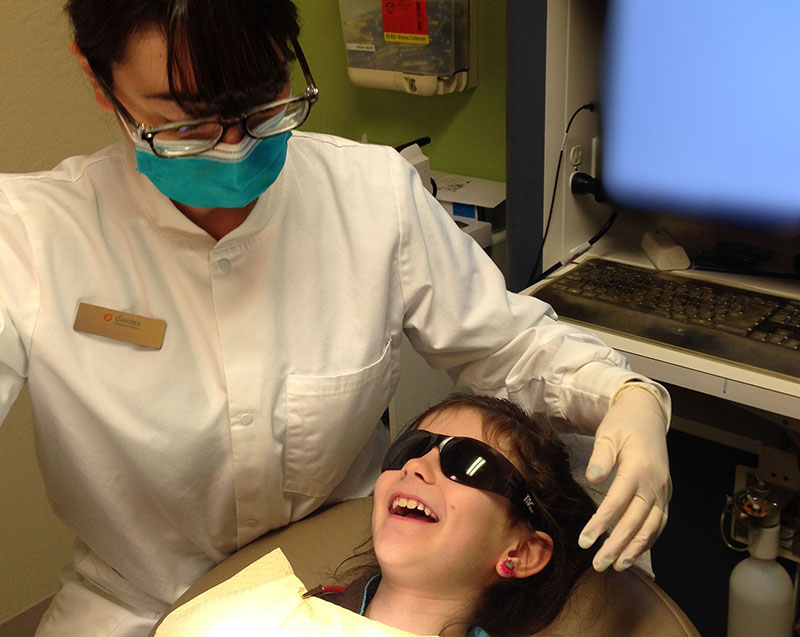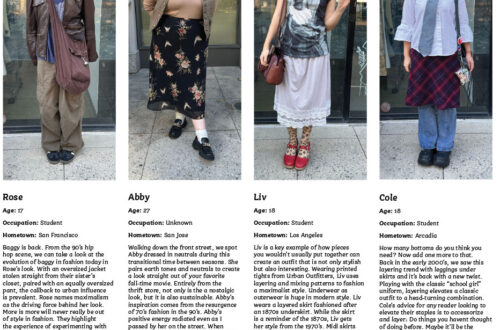
Providing Healthy Smiles for Children
February is Children’s Dental Health Month and the perfect opportunity to write to you, amazing parents, about why your kids’ oral health matters and how to ensure healthy smiles for your children.
Here are answers to some frequently asked questions that we get:
Why do baby teeth matter? Don’t they just fall out?
Baby teeth matter because kids need healthy teeth to chew, smile, talk, and have good self-confidence.
Cavities in baby teeth can cause pain and infection, lead to missed school days, inability to pay attention in school, poor self-esteem, difficulty eating and many more problems. Also, baby teeth save the space for permanent teeth so it’s important to keep them healthy until it’s time for them to fall out on their own.
When should I take my child to the dentist for their first check up?
Medical and dental experts all agree that you should bring your child in for a dental exam soon after the first baby tooth comes through (usually around the age 1.)
Bringing your child to the dentist at an early age serves two purposes: 1. We can focus on parent education and preventing cavities (it’s much easier to prevent than to treat cavities!) 2. The child gets used to the dental office.
During this visit, the dentist will show you how to brush your baby’s teeth and may do a fluoride treatment to prevent cavities.
What are some other tips for keeping my baby’s teeth healthy?
• Start brushing your baby’s teeth with a rice grain-sized dab of fluoride toothpaste as soon as the first baby tooth comes through.
• Don’t put your baby to sleep with a bottle of milk or formula! The liquid pools and causes “baby bottle tooth decay.” Only use water in the bottle at bedtime.
• Don’t share spoons or eating utensils with the baby! Cavities are contagious and can be transferred from the parent to the baby.
Do you have any tips for older kids?
• All children should see a dentist for a check-up and cleaning every 6 months!
• Children or their parents should brush their teeth with a fluoride toothpaste twice a day and start flossing when teeth next to each other begin to touch (usually around the age 2 or 3.)
Fluoride toothpaste is important because the water in our county is not fluoridated!
• If your child’s dentist identifies a problem, be sure to follow up with treatment. The earlier a cavity is addressed, the easier it is to treat and usually less expensive.
What are some milestones that are especially important for visiting the dentist?
• First tooth first birthday visits and every 6 months after that (see above.)
• Kindergarten oral health screenings: a dental check is mandatory in California when a child first enters the school system! There is a form that parents need to have the dentist fill out and turn into the school.
• Pre-teens and teens: we’re doing a great job in Santa Cruz County bringing our young kids to the dentist, but once they get to the pre-teen and teenage years, the visits are dropping off!
Make sure you schedule a dental checkup for your pre-teens and teens.
How can I find a dentist that accepts Medi-Cal/Denti-Cal?
The Dientes clinic on Commercial Way is accepting new pediatric patients (18 and under)! Call 831.464.5409 for an appointment.
For other options, please visit: dental.dhcs.ca.gov/Members/Medi-Cal_Dental/Find_A_Dentist.
Dr. Sepi Taghvaei is a dentist and VP of Operations at Dientes Community Dental, a non-profit organization with the mission to improve the oral health of underserved members of Santa Cruz County. Dr. Sepi graduated from NYU College of Dentistry in 2009 and has spent the last 9 years of her career in her dream job at Dientes. She lives in Aptos with her son, partner, and two cats. They love Santa Cruz and spend their free time exploring all that our beautiful county has to offer.






